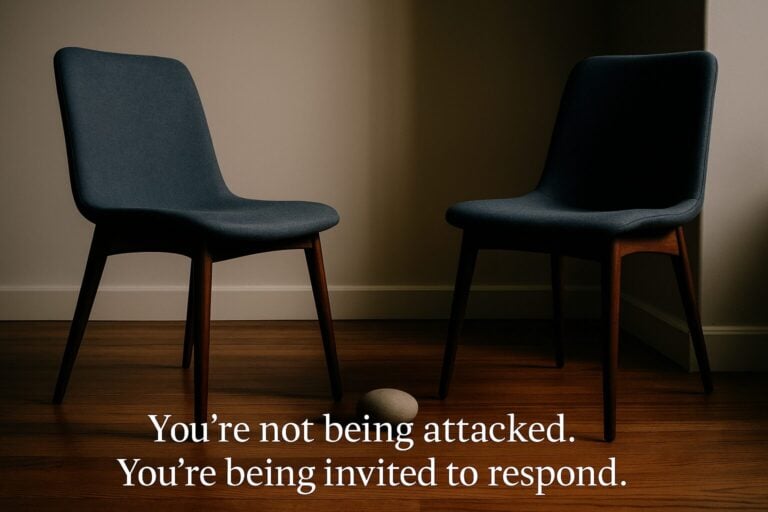How Couples Fight: Understanding the Science of Healthy Conflict
What makes a relationship last? The answer might surprise you. In groundbreaking research spanning decades, Dr. John Gottman and Robert Levenson discovered they could predict with over 90% accuracy which couples would stay together and which would divorce. The key wasn’t how often couples fought – it was maintaining what Gottman called the “magic ratio”: five positive interactions for every negative one during conflicts.
The silence after an argument can feel deafening. Whether you’re sitting in separate rooms wondering ‘Is this normal?’ or questioning if other couples face the same struggles, you’re not alone. But before asking “How often do couples fight?” we need to understand what makes conflict healthy or destructive.
The Science Behind Relationship Conflict
In healthy couples, arguments arise from each partner having different needs, beliefs, and outlooks. Most of these are innate and impossible to change. According to Gottman’s research, almost seven out of ten marital conflicts are not resolvable.
This means that couples must learn how to manage these differences through creative strategies, communication skills, and active repair efforts. The key is accepting that these differences are a part of the relationship and learning to appreciate them rather than seeing them as threats.
Understanding the Magic Ratio
Think of your relationship like a bank account – you need plenty of positive deposits (appreciation, affection, support) to weather the occasional withdrawal (disagreements, frustrations, conflicts). During conflicts, successful couples maintain five positive interactions for every negative one. These positive interactions might include:
- “I hear what you’re saying about feeling overwhelmed with household chores. I don’t want you to feel overwhelmed and I understand why you’re frustrated.”
- “Can we take a break? I want to discuss this when I’m calmer so I can really listen.”
- “I appreciate you bringing this up – it must have been hard to tell me.”
- “You made a good point about [specific detail]. I hadn’t thought about it that way.”
- “I’m sorry I interrupted. Please continue with what you were saying.”
Assess Your Conflict Pattern
Before exploring different conflict styles, take a moment to reflect on these questions:
- After your last argument, did you feel understood, even if you disagreed?
- Can you name three positive things about your partner within 24 hours after a fight?
- Do you feel safe expressing dissenting opinions in your relationship?
- When was the last time you laughed together during a disagreement?
- Can you recall your last three arguments, or do they blur together?
Your answers can help identify your conflict style and areas for improvement.
Understanding Different Conflict Styles
The Quiet Couples
Some couples rarely argue, and that’s not necessarily a problem. These relationships often work well when both partners naturally prefer to focus on areas of agreement and mutual satisfaction. However, consistently avoiding conflict can lead to:
- Important needs going unspoken and unmet
- Partners developing indirect ways of showing frustration
- Small irritations growing into major resentments
- Couples losing the ability to handle disagreements when they do arise
- Difficulty maintaining real intimacy because partners hide their true feelings
The Volatile Couples
These couples express intense emotions during arguments, often characterized by:
- Passionate debates with laughter and humor
- Expression of insecurity and anger, but no contempt
- Careful attention to hurt feelings
- Intertwined lives with permeable boundaries
- High value placed on connection and honest communication
The Balanced Couples
These couples demonstrate healthy conflict through:
- Both partners feeling safe expressing opinions
- Arguments leading to better understanding
- Ability to be playful even during disagreements
- Conflicts having clear beginnings and endings
- Maintaining respect even when angry
- Both partners taking responsibility
- Agreeing to disagree on some issues
Signs of Unhealthy Conflict
⚠️ Name-calling or character attacks
⚠️ Bringing up past mistakes repeatedly
⚠️ Silent treatment lasting days
⚠️ Threats to end the relationship during arguments
⚠️ Physical intimidation or violence
⚠️ Unable to recall what started the fight
⚠️ One partner always “wins” while the other “loses”
Practical Conflict Management Strategies
For Avoiders:
- Start with “I appreciate” statements
- Set specific time limits for difficult conversations
- Write down key points beforehand
- Use “I feel” statements instead of accusations
- Take breaks when overwhelmed
For Volatile Couples:
- Establish a “time-out” signal
- Wait 20 minutes before responding when triggered
- Focus on one issue at a time
- Repeat partner’s point before responding
- Keep a “success journal” of resolved conflicts
For Mixed-Style Couples:
- Create communication “ground rules” together
- Schedule regular check-ins
- Use “scale of 1-10” to express feeling intensity
- Alternate who speaks first
- Acknowledge different conflict styles as valid
Real-World Application
Consider how different couples handle common conflicts:
The Holiday Planning Dispute
Marjorie wants to spend Christmas with her family, while Eugene prefers staying home. Their healthy approach includes:
- Sharing the emotional “why” behind preferences
- Brainstorming creative alternatives
- Considering each other’s past experiences
- Looking for win-win solutions
The Financial Friction
Earl is a saver, Ada is a spender. Their solution:
- Monthly “money dates” to review finances
- Separate discretionary spending accounts
- Sharing money stories and childhood experiences
- Establishing joint financial goals while respecting differences
When to Seek Professional Help
Watch for these red flags:
🚩 Fighting about the same polarizing issue for over 6 months
🚩 Feeling unsafe expressing true feelings
🚩 Arguments escalating to threats or ultimatums
🚩 Unable to discuss resolution without third-party intervention
🚩 Keeping score of past wrongs
🚩 Consistent breakdown in daily communication
🚩 Loss of respect or contempt for partner
Closing Thoughts
Remember, the strength of your relationship isn’t measured by how often you fight – it’s measured by how you show up for each other, even in disagreement. Whether you’re the couple who has heated debates over breakfast or the pair who rarely raises their voices, what matters is maintaining that delicate balance of respect, repair, and reconnection.
If you’re concerned about your conflict patterns, consider seeking professional guidance an act of love. After all, learning to navigate disagreements with grace isn’t just about avoiding fights—it’s about building a stronger, more resilient bond that can weather any storm. Your relationship deserves that kind of investment.







